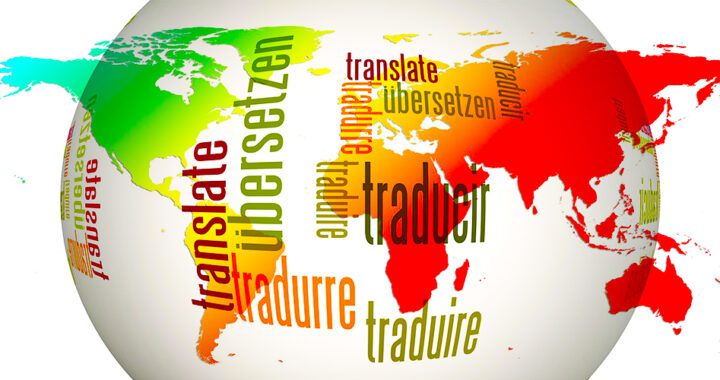The Importance of Understanding Rejection and Upgraded Sensitivity of the 2018-2021 Generation

Introduction
As our society shifts towards a more interconnected, global environment, many people are experiencing increased sensitivity to rejection. Understanding the unique challenges faced by the 2018-2021 generation can help us develop strategies to navigate and overcome those challenges.
What is Rejection?
 Rejection is when we are excluded or devalued by others. It can happen in many ways, such as being rejected by a romantic partner, being turned down for a job, or experiencing social exclusion. When we experience rejection, it can have a negative impact on our self-esteem, well-being, and mental health.
Rejection is when we are excluded or devalued by others. It can happen in many ways, such as being rejected by a romantic partner, being turned down for a job, or experiencing social exclusion. When we experience rejection, it can have a negative impact on our self-esteem, well-being, and mental health.
Why are We More Sensitive to Rejection?
The 2018-2021 generation has grown up in an era of constant social media use and peer comparison. Social media has created an environment where people feel pressured to present a perfect image of themselves, leading to increased social anxiety and fear of rejection. The 2018-2021 generation has also been exposed to a higher level of violence, crime, and insecurity, which can make them more vulnerable to rejection.
The Impact of Rejection
Rejection can impact us in many ways, such as damaging relationships, increasing anxiety and depression, and even leading to suicide. The impact of rejection can be especially severe on the 2018-2021 generation, who may not have developed the resilience necessary to cope with rejection and its consequences.
What is Upgraded Sensitivity?
 Upgraded sensitivity refers to the ability to perceive and respond to emotions more deeply and accurately than others. This trait is common among the 2018-2021 generation and can make rejection more challenging to handle. However, upgraded sensitivity can also be a strength, allowing individuals to empathize with others and understand their own emotions more deeply.
Upgraded sensitivity refers to the ability to perceive and respond to emotions more deeply and accurately than others. This trait is common among the 2018-2021 generation and can make rejection more challenging to handle. However, upgraded sensitivity can also be a strength, allowing individuals to empathize with others and understand their own emotions more deeply.
How to Overcome Rejection
Overcoming rejection requires a multifaceted approach. One strategy is to develop resilience and coping mechanisms, such as exercise, meditation, and seeking support from friends and family. Another strategy is to reframe rejection positively, seeing it as an opportunity to grow and learn from experience. Finally, seeking professional help from a therapist or counselor can help individuals develop the skills and strategies necessary to cope with rejection and improve their overall emotional well-being.
The Importance of Empathy in Dealing with Rejection
Empathy is the ability to understand and share the feelings of others. It can be an important tool in overcoming rejection, as it allows us to connect with others and develop a deeper sense of understanding. Developing empathy can be challenging, but can be achieved through practice and reflection.
Balancing Upgraded Sensitivity and Resilience
 While upgraded sensitivity can be a strength, it can also leave individuals vulnerable to rejection. Balancing upgraded sensitivity and resilience requires developing the skills and strategies necessary to cope with rejection effectively while still maintaining empathy and emotional awareness.
While upgraded sensitivity can be a strength, it can also leave individuals vulnerable to rejection. Balancing upgraded sensitivity and resilience requires developing the skills and strategies necessary to cope with rejection effectively while still maintaining empathy and emotional awareness.
The Impact of Technology on Rejection
 Technology has both positive and negative impacts on the experience of rejection. On the one hand, social media can increase feelings of insecurity and anxiety, while on the other hand, it can also provide a platform for individuals to connect and form supportive communities.
Technology has both positive and negative impacts on the experience of rejection. On the one hand, social media can increase feelings of insecurity and anxiety, while on the other hand, it can also provide a platform for individuals to connect and form supportive communities.
The Role of Parenting in Developing Resilience
Parenting plays a crucial role in developing resilience and coping mechanisms in children. Parents can help children develop a positive self-image by providing support, encouragement, and positive feedback. They can also teach children how to handle rejection in healthy ways, such as through play and social interaction.
Community Support and Resilience
 Community support can also play a role in developing resilience in individuals. By creating supportive environments and providing opportunities for social interaction, communities can help individuals develop the skills and strategies necessary to cope with rejection and stress.
Community support can also play a role in developing resilience in individuals. By creating supportive environments and providing opportunities for social interaction, communities can help individuals develop the skills and strategies necessary to cope with rejection and stress.
The Importance of Self-Awareness in Developing Resilience
Self-awareness is the ability to recognize and understand our own emotions, thoughts, and behaviors. Developing self-awareness can be an important tool in developing resilience, as it allows us to identify and address negative patterns of behavior and thought.
Building Resilience in the Workplace
Developing resilience in the workplace involves creating a supportive environment that encourages employees to take care of their physical and mental health. Employers can provide resources, such as insurance coverage for therapy or mindfulness training, to help employees develop coping mechanisms and reduce stress.
Learning from Rejection
Rejection can also be an opportunity for growth and learning. By examining the reasons for rejection and identifying areas for improvement, individuals can use rejection as a tool for personal and professional development.
The Role of Mindfulness in Coping with Rejection
Mindfulness is the practice of being present and fully engaged in the current moment. Incorporating mindfulness into daily life can help individuals develop resilience and reduce the negative impact of rejection by improving emotional regulation and increasing awareness.
The Impact of Culture on Rejection
Culture can also play a role in shaping the experience of rejection. For example, in some cultures, rejection may be seen as a natural part of life, while in others, it may be viewed as a personal failure. Understanding cultural attitudes towards rejection can help individuals develop more effective coping mechanisms.
Coping with Rejection in Personal Relationships
 Coping with rejection in personal relationships can be particularly challenging, as it can involve feelings of loss and failure. Strategies for coping with rejection in personal relationships include seeking support from friends and family, reframing the rejection as an opportunity for personal growth, and seeking professional help if necessary.
Coping with rejection in personal relationships can be particularly challenging, as it can involve feelings of loss and failure. Strategies for coping with rejection in personal relationships include seeking support from friends and family, reframing the rejection as an opportunity for personal growth, and seeking professional help if necessary.
The Importance of Boundaries in Coping with Rejection
Setting healthy boundaries is an important tool in coping with rejection. By setting boundaries around personal space, time, and emotional availability, individuals can protect themselves from excessive emotional labor and reduce the negative impact of rejection.
The Impact of Childhood Trauma on Rejection
Childhood trauma can impact the way individuals perceive and respond to rejection. Individuals who have experienced childhood trauma may develop insecure attachment patterns and struggle with developing resilience and coping mechanisms in the face of rejection.
Building Resilience in Children
Building resilience in children involves creating a supportive environment that allows them to develop coping mechanisms and positive self-image. Strategies for building resilience in children include positive feedback, nurturing play, and creating supportive social environments.
How Upgraded Sensitivity Can Lead to Success
 While upgraded sensitivity can be challenging to navigate, it can also be a strength that leads to success. Upgraded sensitivity allows individuals to perceive and respond to emotions more deeply and accurately, which can lead to greater empathy, creativity, and problem-solving skills.
While upgraded sensitivity can be challenging to navigate, it can also be a strength that leads to success. Upgraded sensitivity allows individuals to perceive and respond to emotions more deeply and accurately, which can lead to greater empathy, creativity, and problem-solving skills.
Conclusion
Navigating rejection and upgraded sensitivity can be challenging, but by developing the skills and strategies necessary to cope, individuals can overcome the negative impacts of rejection and thrive. By fostering resilience, empathy, and self-awareness, individuals can build a positive self-image and develop the skills necessary to navigate the challenges of modern society.

 Review of the Sterilizer Charging Wireless Certified Sanitizer
Review of the Sterilizer Charging Wireless Certified Sanitizer 

![Amazon.com: TAURI [5 in 1 Designed for iPhone 13 Case, [Not-Yellowing] with 2X Tempered Glass Screen](https://www.coupondealsone.com/wp-content/uploads/2024/04/BehK01P1wVQe-500x380.jpg)



